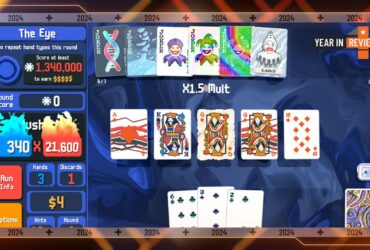Xenoblade studio Monolith Soft is now 100 percent owned by Nintendo.
Based in Tokyo, with a second office in Nintendo’s home of Kyoto, Monolith Soft has become a key partner studio for the Mario maker over the past two decades, and has provided development support for some of Nintendo’s biggest titles, including Animal Crossing: New Horizons and Zelda: Breath of the Wild.
Now, Nintendo has increased its stake in the company to fully own it, after initially purchasing 80 percent of Monolith Soft from Bandai Namco in 2007. Nintendo then increased its stake to 96 percent in 2011, while the company’s original owners retained a symbolic four percent stake.
Nintendo has not officially announced the change, but its 100 percent ownership of the company was recently added to Monolith Soft’s website, as spotted by Automaton.
Monolith Soft began its era as a Nintendo-exclusive studio in 2008 with a range of smaller titles, including Wii shooter Disaster: Day of Crisis and RPG Soma Bringer for Nintendo DS.
But it was the 2010 launch of Wii RPG Xenoblade Chronicles which saw Monolith Soft find its new niche. Three sequels have followed, with Wii U game re-release Xenoblade Chronicles X: Definitive Edition set to launch on Switch in March 2025.
In the background, Monolith Soft has also provided extra development support to Nintendo’s own internal development houses. It has assisted Nintendo with all three Splatoon titles, the past three Animal Crossing games, and is now a regular co-developer on The Legend of Zelda series, with credits on Skyward Sword, A Link Between Worlds, Breath of the Wild and Tears of the Kingdom.
What could the studio be working on next for Switch 2?
fbq('init', '560747571485047');
fbq('track', 'PageView'); window.facebookPixelsDone = true;
window.dispatchEvent(new Event('BrockmanFacebookPixelsEnabled')); }
window.addEventListener('BrockmanTargetingCookiesAllowed', appendFacebookPixels);












Leave a Reply